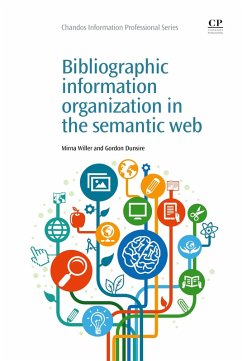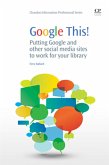New technologies will underpin the future generation of library catalogues. To facilitate their role providing information, serving users, and fulfilling their mission as cultural heritage and memory institutions, libraries must take a technological leap; their standards and services must be transformed to those of the Semantic Web. Bibliographic Information Organization in the Semantic Web explores the technologies that may power future library catalogues, and argues the necessity of such a leap. The text introduces international bibliographic standards and models, and fundamental concepts in their representation in the context of the Semantic Web. Subsequent chapters cover bibliographic information organization, linked open data, methodologies for publishing library metadata, discussion of the wider environment (museum, archival and publishing communities) and users, followed by a conclusion.
- The product of over thirty years' experience and in-depth understanding of bibliographic metadata
- Takes both a bottom up and top down approach: from basic standards and case studies to Semantic Web tools and services; and from abstract models and generic guidelines to applications
- Tells an insiders' story of the experience developing tools for the transition of library systems, metadata, and its utility, into the new milieu
Dieser Download kann aus rechtlichen Gründen nur mit Rechnungsadresse in A, B, BG, CY, CZ, D, DK, EW, E, FIN, F, GR, HR, H, IRL, I, LT, L, LR, M, NL, PL, P, R, S, SLO, SK ausgeliefert werden.









